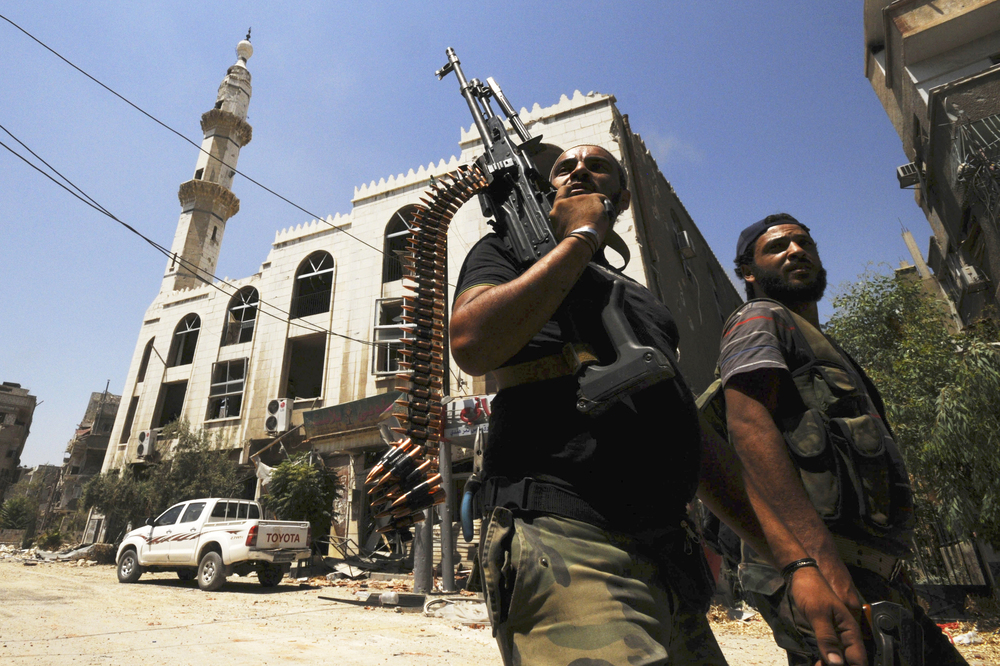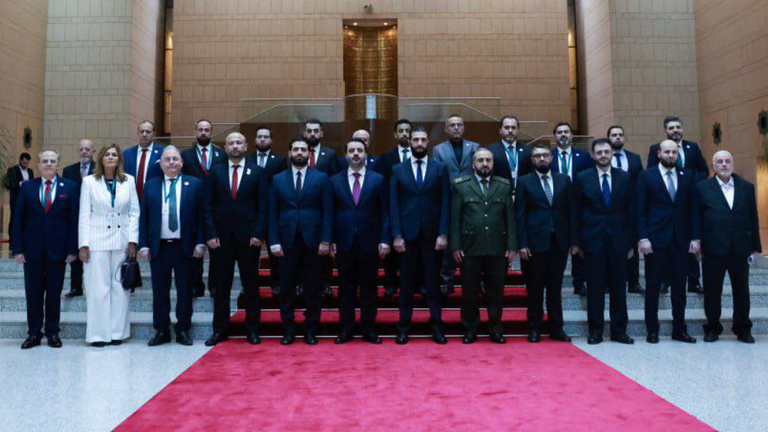The Trump administration"s bold move to revoke the foreign terrorist organization designation for Hay"at Tahrir al-Sham signals a dramatic shift in U.S. foreign policy, one that raises serious ethical and strategic questions about America"s role in the Middle East. As reported by Reuters, this decision comes on the heels of HTS leader Ahmed al-Sharaa"s ascension to the presidency following the ousting of Bashar al-Assad’s regime in December 2024.
New Era of Governance in Syria
Sharaa"s leadership marks a pivotal moment for Syria, where decades of authoritarian rule have given way to a new governing body that claims to seek inclusivity and democracy. During a meeting in Damascus, Sharaa emphasized his commitment to rebuilding the war-torn nation, a sentiment echoed by Syrian officials who view the lifting of sanctions as a pathway to international cooperation. This is a promising narrative, yet it raises critical concerns about the implications of empowering a group with a controversial past.
Implications of Lifting Sanctions
The revocation of sanctions by the Trump administration, as articulated by Secretary of State Marco Rubio, aims to foster a stable and unified Syria. However, this policy shift overlooks the potential for HTS to consolidate power and sideline other voices advocating for genuine democratic reform. Critics argue that this decision could inadvertently provide legitimacy to a group previously linked to al-Qaeda, thus complicating the geopolitical landscape further. The U.S. has historically positioned itself as a promoter of democracy and human rights; this new stance may undermine those principles in favor of strategic alliances.
\n\n
In Syria, The U.S. Weighs A Range Of Unpalatable Options | WBUR
International Reactions and Concerns
International reactions have varied, with some seeing the lifting of sanctions as a necessary step toward reconstruction, while others warn of the dangers of legitimizing extremist factions. The Syrian foreign ministry"s statement reflects a cautious optimism about the possibility of restoring normalcy after years of civil war. However, the reality on the ground is complex; the U.N. Security Council still maintains sanctions against HTS and Sharaa, highlighting the divisions within the international community regarding Syria’s future. As reported by The New York Times, the ongoing sanctions by the U.N. could stifle any momentum gained from U.S. actions.
Human Rights Implications
Sanctions have been a tool for enforcing human rights standards in Syria, particularly concerning the Assad regime"s notorious abuses. The move to lift sanctions on HTS raises pressing questions about the future of human rights in the country. Can a group with a violent history be trusted to uphold the rights of all Syrians? The fears surrounding this issue are compounded by reports of ongoing repression and the violent suppression of dissent in areas controlled by HTS. The implications for marginalized communities within Syria are profound, as these groups could face further marginalization under a regime that has historically been less than inclusive.
\n\n
Syria"s new transitional government announced | World News ...
Future of U.S. Engagement in Syria
The U.S. strategy in Syria has oscillated between military intervention and diplomatic engagement. The recent sanctions revocation reflects an inclination toward diplomacy, yet the potential for HTS to dominate the political landscape raises alarms about the effectiveness of this strategy. As noted by the State Department, the U.S. will still retain sanctions against Assad and his affiliates, aiming to balance accountability with the need for engagement. However, the question remains: can the U.S. effectively navigate the complexities of Syrian politics without empowering extremist elements?


![[Video] Heavy clashes and gunfire reported in Baghdad, Iraq](/_next/image?url=%2Fapi%2Fimage%2Fthumbnails%2Fthumbnail-1768342239932-848qsh-thumbnail.jpg&w=3840&q=75)




![[Video] Gunfire between Iraqi security forces and Sadr militias in Baghdad](/_next/image?url=%2Fapi%2Fimage%2Fthumbnails%2Fthumbnail-1768343508874-4redb-thumbnail.jpg&w=3840&q=75)
